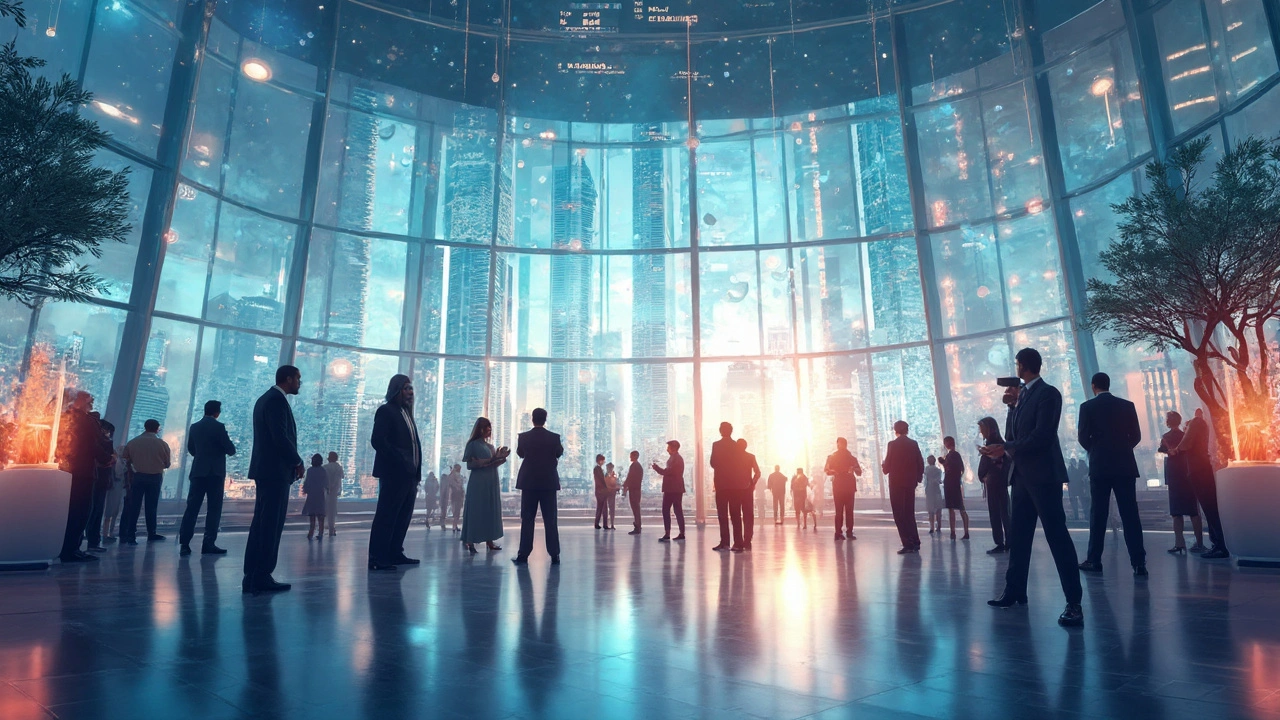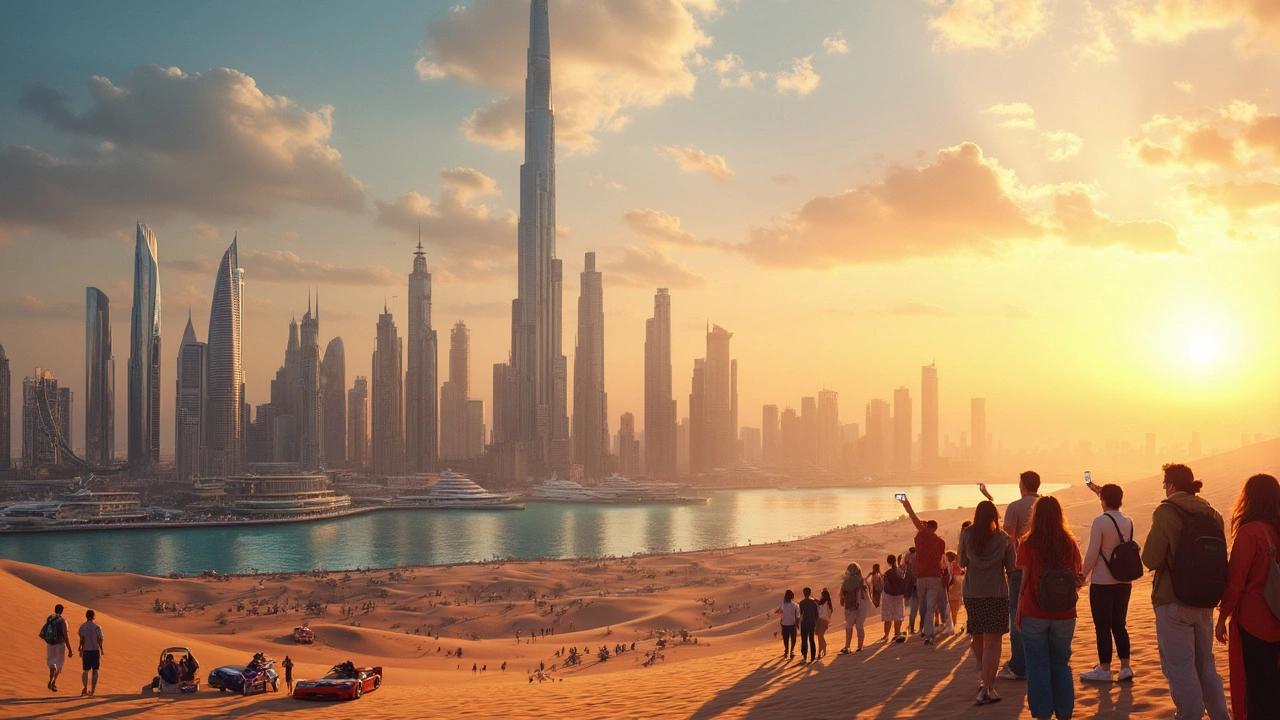It’s hard not to gawk at Dubai. Skyscrapers slice the sky, Lamborghinis idle outside shopping malls, and social media feeds buzz with vacationers snapping selfies near the Burj Khalifa pool. The mind races—how did this once sleepy fishing port become the bling capital of the world? The answer isn’t just one lucky oil strike. There’s a clever blend of gutsy ambition, wild risk-taking, and calculated global strategy behind Dubai’s jaw-dropping transformation. Get ready to have your assumptions shaken—things here run deeper and weirder than they first appear.
The Real Story of Dubai’s Oil and Wealth
Most people assume Dubai is loaded because of oceans of oil. The classic story goes: discover oil, get rich, build a city of gold. That’s partly true, but not for long. Dubai actually struck oil in 1966—late compared to Persian Gulf neighbors. And here’s the twist: Dubai’s oil reserves started running out only a few decades after discovery. Today, oil makes up less than 1% of Dubai’s GDP. Yep, you read that right. Break out the pie charts and you’ll see the UAE capital, Abu Dhabi, still floats on crude, but Dubai’s oil trickle would barely fill up your backyard pool.
Dubai’s first leader after oil, Sheikh Rashid bin Saeed Al Maktoum, quickly realized “easy money” wouldn’t last. So, he steered Dubai in a different direction—betting big on becoming a trade hub. He used oil profits to build deep-water ports (like Port Rashid) and later, the world-famous Jebel Ali Port, which now handles containers from every continent. That foresight? It totally paid off. By the 1980s, Dubai was earning more from trade and re-exports than from oil. They weren’t content waiting for oil cheques—they carved out their own future. The lesson here: Dubai got rich because its leaders knew the oil party would end, and they planned for the hangover in advance.
A Tax-Free Business Playground
Ever heard of a city with no income tax? Welcome to Dubai. People love griping about taxes, but in Dubai, that frustration simply doesn’t exist. The government went all-in making Dubai super business-friendly. There’s zero personal income tax, and most goods come through with little import duty. That’s a magnet for entrepreneurs, expats, and global companies eager to avoid red tape and squeeze every dollar from their profits.
Dubai set up what’s called “free zones”—special business parks where foreign companies can own 100% of their businesses. No local partner needed, no corporate income tax for up to 50 years, and easy repatriation of profits. That’s irresistible if you’re a tech startup, bank, law firm, or pretty much any international business. The Dubai Multi Commodities Centre, for example, houses thousands of firms. The wider city has over 30 free zones, most stacked with global names. Major international banks, luxury carmakers, media companies, and tech unicorns have all planted their flags here. The result? A stampede of cash and investment, not just from oil tycoons, but from regular, everyday businesses all over the planet.
Here’s a fun fact: according to the Dubai Statistics Center, more than 88% of Dubai’s population is made up of expats—everything from bankers to engineers, hospitality workers to influencers. Why? The city created an ecosystem that rewards risk-taking and entrepreneurship. It's not an egalitarian paradise (many workers live on modest wages), but Dubai has channeled global ambition into an urban economy that’s crazier and more diverse than people realize.

Tourism, Mega Projects, and Supercharged Branding
If you ask anyone in Perth to name the first thing that pops to mind about Dubai, I bet it’s shopping malls, luxury hotels, or that silly indoor ski slope in the desert. Dubai’s shifted from a gritty trade hub to a worldwide playground within a single generation—that’s not by accident. City planners doubled down on making Dubai the go-to destination for wow-factor tourism and commerce.
Look at these bold moves: The Burj Khalifa isn’t just a skyscraper—it’s the world’s tallest building, and a literal symbol of “look what we can do.” The Palm Jumeirah, a palm tree-shaped island the size of 600 soccer fields, was dredged from the sea just to show off. Emirates Airlines—wholly owned by the Dubai government—became one of the world’s biggest and best airlines almost overnight, creating an international gateway for tourists and business travelers.
Here’s a glimpse of how hard Dubai leans into grand projects and branding:
| Dubai Mega Project | Completion Year | Key Fact |
|---|---|---|
| Burj Khalifa | 2010 | Tallest building in the world (828m) |
| Palm Jumeirah | 2006 | Palm tree-shaped artificial island |
| Dubai Mall | 2008 | Largest mall in world by area |
| World Islands | Ongoing | Man-made islands shaped like world map |
| Burj Al Arab | 1999 | Luxury “seven-star” hotel |
Tourists now pour in for everything from shopping festivals to car racing and luxury dining. According to Dubai’s Department of Economy and Tourism, they attracted over 17 million overnight visitors in 2023, topping many much bigger cities. The UAE mission doesn’t stop—Expo 2020, delayed to 2021 because of COVID, drew millions and showed Dubai can pivot and adapt faster than you expect.
So, if you see photos of celebrities, influencers, and sports stars flocking to Dubai, it’s not just hype. The city nailed the art of irresistible branding. Add in permanent sunshine, glittering beaches, safety, and English as the go-to business language, and you’ve got a magnet for the world’s rich, famous, and ambitious. The Emirates is a place to be seen—and a place that funds itself by being seen.
Innovation, Investment, and the Path Ahead
Here’s where it gets wild. Dubai isn’t satisfied with what it already has. The government keeps pushing into tech, renewable energy, and even space. In 2021, the UAE sent a probe (“Hope”) to Mars. Who would have bet on that back in the 90s, when camel stables still dotted the city?
The city pours serious money into real estate, fintech, AI, and green energy projects. There are plans for a “Museum of the Future,” electric air taxis, and the region’s first driverless metro. Real estate continues to mushroom, so much that property prices are regularly charted by global investors. Government initiatives like “D33”—a plan to double Dubai’s economy by 2033—focus on digitalization, sustainability, and making everything easier for investors and visitors. If you see “smart city” tech, Dubai probably trialed it first in the region.
But Dubai’s wild ride isn’t without bumps. The city is famously tolerant by regional standards, but rules can still feel strict to outsiders. Property bubbles come and go, and there’s a huge range in how wealth is felt—service workers and construction crews don’t live like social media influencers. Climate is brutal: temperatures regularly scorch past 45°C (113°F) in summer, which means everything from air conditioning to desalinated water is a must.
Want to make money in Dubai? Get creative. Try trading in gold (gold souks are legendary), buying into property, setting up a digital nomad business, or flipping cars—the used supercar market is always buzzing. But spend some time mingling with people from different backgrounds, too. Everyone has a “how I ended up here” story, and that’s part of what keeps this city’s magic alive.
The big secret behind Dubai wealth is hustle, not a bottomless well of oil. It’s ambition, openness, and relentless reinvention that made Dubai one of the most jaw-dropping, bewildering, over-the-top cities on Earth. Love it or roll your eyes, there’s no denying Dubai wrote its own playbook on getting—and staying—rich.
